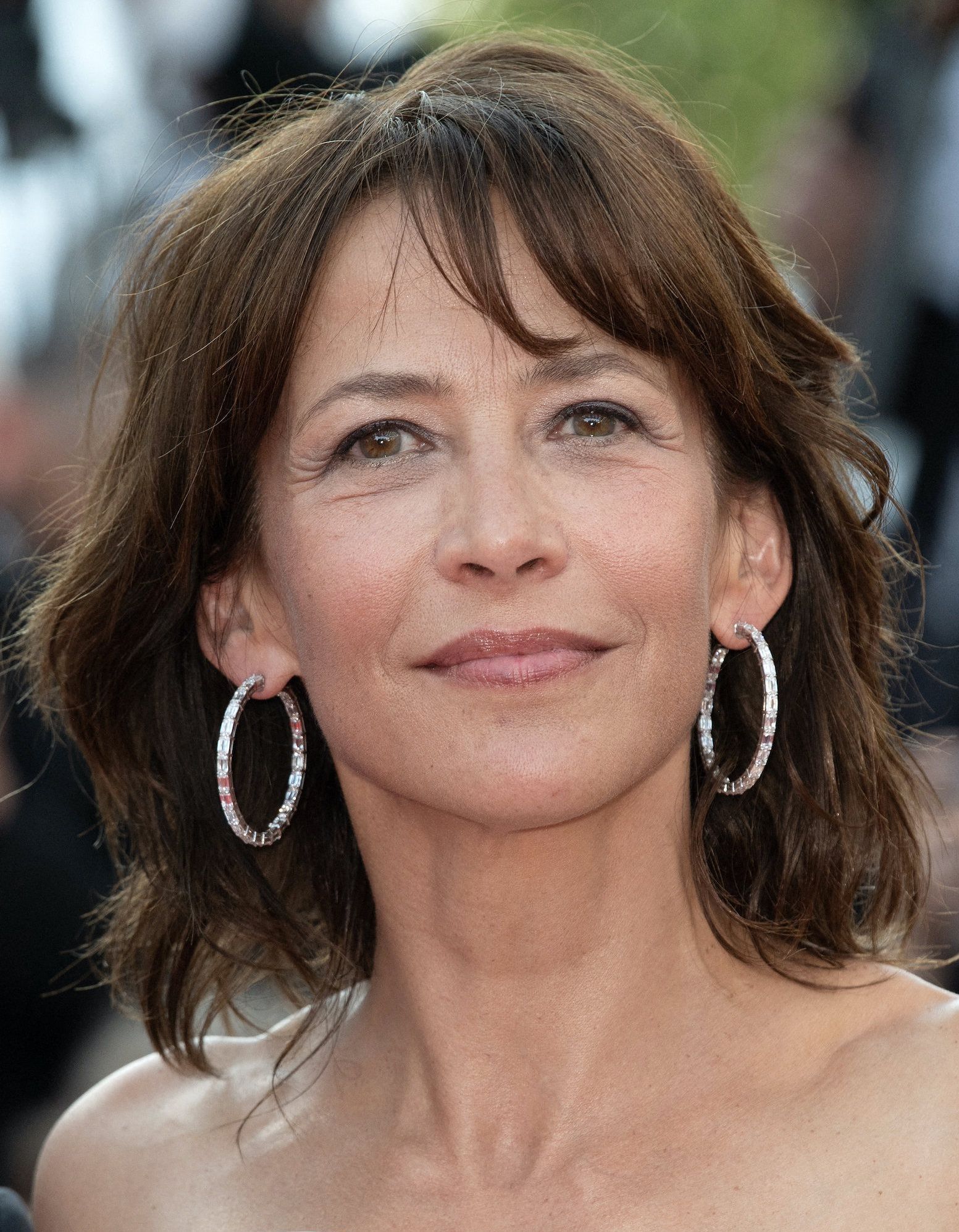Discovering Sophie Rosing: A Voice From Opera's Past
Have you ever wondered about the voices that shaped opera long ago, the artists whose talent captivated audiences in a different era? It's a fascinating thought, isn't it? We often hear about modern performers, but the history of the stage holds so many incredible stories, just waiting to be explored.
There's a good chance you might have come across names like Sophie Xeon, known for her groundbreaking production work, or perhaps Sophie Habboo, a familiar face from television. You might even know of Sophie Nyweide, a child actor whose life was cut short, or Sophie Melville, an actress making her mark. These individuals, as mentioned in some of our recent discussions, have certainly left their own unique impressions.
However, today, we're going to turn our attention to someone quite different, a figure from a century ago whose artistry truly shone. We're going to talk about Sophie Rosing, a Danish opera singer whose career spanned a significant period in the late 19th and early 20th centuries. She was, in a way, a remarkable presence on the operatic stage, and her contributions are certainly worth remembering.
Table of Contents
- Who Was Sophie Rosing?
- Early Life and Training
- A Career on the Stage
- Notable Roles and Performances
- Sophie Rosing's Legacy
- Personal Details and Bio Data
- People Also Ask
- The Enduring Impact
Who Was Sophie Rosing?
Sophie Rosing, born Sofie Christiane Rosing, was a highly regarded Danish opera singer. She was, in fact, a soprano who graced the stages of Europe during a time when opera was incredibly popular. Her voice, by all accounts, was something quite special, allowing her to take on many different kinds of roles. She had a pretty long career, too, which is quite something for any performer.
She was, you know, a part of a very vibrant period for the performing arts in Denmark. Her work helped to shape the operatic scene in her home country. It's almost like she was a cornerstone for a generation of opera lovers. She brought characters to life with a real sense of feeling, which audiences really seemed to appreciate.
Early Life and Training
Sophie Rosing came into the world in Copenhagen, Denmark, on February 15, 1868. Her early life, like many aspiring artists, involved a lot of dedicated effort. She received her vocal education at the Royal Danish Conservatory of Music. This was, in some respects, the premier institution for musical training in Denmark at that time.
Her teachers there recognized her natural gift for singing. They helped her to develop her voice, giving her the technical skills she would need. It takes a lot of discipline, you know, to become an opera singer. She put in many hours of practice, perfecting her technique. This early preparation was, naturally, very important for her future success.
She learned about breathing, projection, and how to control her voice across a wide range. These fundamental skills are, quite frankly, what makes an opera singer stand out. Her time at the conservatory laid a very strong foundation for her professional journey. It was, arguably, where her path truly began to take shape.
A Career on the Stage
Sophie Rosing made her debut at the Royal Danish Theatre in Copenhagen. This was a really big moment for her, as it's one of the most prestigious venues in Denmark. She quickly became a principal soprano there, which shows just how talented she was. Her performances were, typically, met with great enthusiasm from the public and critics alike.
She performed a very wide array of roles throughout her career. This meant she could sing everything from dramatic parts to lighter, more lyrical ones. That kind of versatility is, you know, pretty rare for a singer. She was able to adapt her voice and acting to suit the different demands of each opera. This made her a really sought-after performer.
Her work wasn't just limited to Denmark, either. She also made appearances in other European cities. This helped to spread her reputation beyond her home country. She was, you might say, an ambassador for Danish opera in a way. Her presence on international stages showed the quality of Danish musical talent.
She continued to perform for many years, maintaining a high level of artistry. It's almost incredible how long she managed to keep her voice in such good condition. Her dedication to her craft was, quite clearly, a defining characteristic of her career. She really loved what she did, and it showed in every performance.
Notable Roles and Performances
Sophie Rosing was known for her interpretations of many classic operatic roles. She often took on parts that required both strong vocal ability and dramatic flair. One role she was particularly praised for was Elsa in Wagner's "Lohengrin." This is a pretty demanding part, and she apparently handled it with great skill.
She also excelled as Sieglinde in Wagner's "Die Walküre." These Wagnerian roles, you know, are very challenging for any soprano. They need a lot of vocal power and stamina. Her ability to sing these parts really cemented her reputation as a leading dramatic soprano of her time. It was, frankly, quite an achievement.
Beyond Wagner, she also performed in operas by other famous composers. She sang roles in works by Verdi and Puccini, among others. This showed her range and her ability to bring different musical styles to life. She could, in fact, switch from one style to another quite seamlessly.
Her performances were often described as deeply moving. She had a way of connecting with the characters she portrayed. Audiences would, typically, feel a real emotional pull from her singing. This made her performances truly memorable experiences for those who saw them. She was, basically, a master of her art.
She was also involved in some premieres of Danish operas. This is pretty significant, as it means she helped to introduce new works to the public. She played a part in developing the Danish operatic tradition. Her contributions were, therefore, very important for the cultural life of her country. She was, in a way, a pioneer for new music.
Sophie Rosing's Legacy
Sophie Rosing passed away on January 29, 1936, but her impact on Danish opera continued for many years. She left behind a reputation as one of Denmark's finest vocal artists. Her performances set a high standard for those who came after her. Many aspiring singers looked up to her, trying to emulate her success.
Even though recordings from her era are rare, her name still comes up in discussions of historical opera. Music historians and opera enthusiasts, you know, often mention her. She is remembered for her powerful voice and her compelling stage presence. Her contributions are, arguably, a significant part of Danish cultural history.
Her story reminds us of the dedication and talent required to reach the top in the performing arts. It also shows how artists from the past continue to influence us. Her legacy, in some respects, lives on through the stories told about her. She was, quite simply, a remarkable figure in the world of opera.
To learn more about the history of opera in Denmark, you might find information at institutions like the Royal Danish Theatre archives. They often hold records of past performances and artists. You can learn more about opera history on our site, and link to this page here for additional details on European vocalists.
Personal Details and Bio Data
| Detail | Information |
|---|---|
| Full Name | Sofie Christiane Rosing |
| Born | February 15, 1868 |
| Birthplace | Copenhagen, Denmark |
| Died | January 29, 1936 |
| Nationality | Danish |
| Profession | Opera Singer (Soprano) |
| Notable Affiliation | Royal Danish Theatre |
| Vocal Range | Soprano (known for dramatic roles) |
| Years Active | Late 19th - Early 20th Century |
People Also Ask
Who was Sophie Rosing?
Sophie Rosing was a Danish opera singer, a soprano, who was very active in the late 1800s and early 1900s. She was, in a way, one of the leading voices at the Royal Danish Theatre. She was known for her strong vocal abilities and her ability to portray dramatic characters on stage. Her career was, quite long and successful, which is something special.
What roles did Sophie Rosing sing?
Sophie Rosing performed a wide variety of operatic roles. She was particularly celebrated for her interpretations of Wagnerian heroines, such as Elsa in "Lohengrin" and Sieglinde in "Die Walküre." She also sang in operas by other important composers, showing her versatility. She could, in fact, handle many different styles of music.
When did Sophie Rosing live?
Sophie Rosing lived from 1868 to 1936. Her active singing career, you know, primarily took place during the late 19th and early 20th centuries. This period was a really interesting time for opera, with many new works being created and performed. She was, basically, a part of that exciting era in music history.
The Enduring Impact
Thinking about Sophie Rosing today, we get a sense of the rich history of opera. Her story, you know, highlights the dedication that artists bring to their craft. She gave so much of herself to her performances, captivating audiences with her voice. It's a reminder that even without modern recordings, the impact of a great artist can resonate through time.
Her life and career offer a glimpse into the cultural landscape of Denmark during her time. She was, quite clearly, a significant figure in her country's artistic development. We can, perhaps, take a moment to appreciate the depth of talent that existed in past generations. Her legacy is, basically, a part of that larger story.
So, as we reflect on figures like Sophie Rosing, we're reminded that history is full of remarkable individuals. They shaped their fields in profound ways, leaving behind a lasting impression. Her voice, though unheard by us today, continues to inspire those who study opera history. It's, truly, a wonderful thing to think about.

Sophie Marceau - JialiangAzia

🔥 Free download Sophie Turner images Sophie Turner Glamour SpringSummer

Sophie Monks Fotografías e imágenes de stock - Getty Images